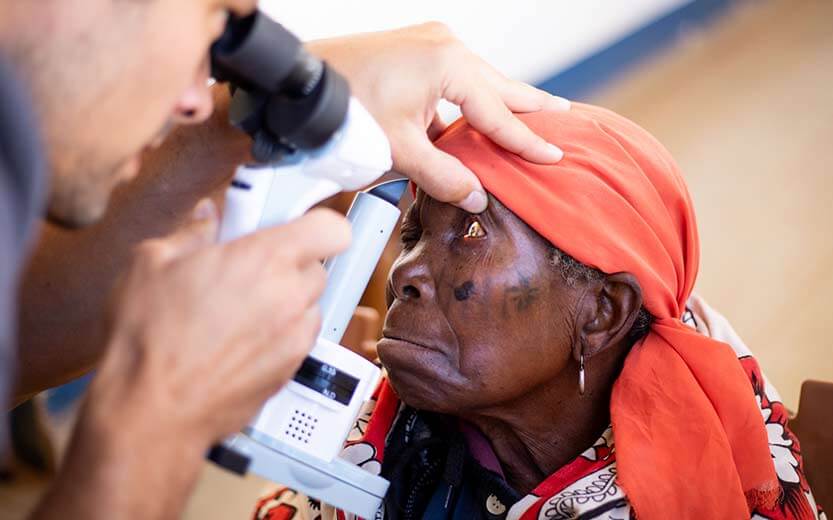Make us a beneficiary of your IRA or other “non-probate” assets
Why beneficiary designations are so powerful
Assets not included in your will are called non-probate assets. Examples are 401(k)s, IRAs, life insurance policies, and other accounts. Designating the Cure Blindness Project as a beneficiary can have a big impact and may avoid unwanted taxes for your heirs.

Charitable benefits

Common gifted assets for beneficiaries
- IRA
- 401(k)
- Life insurance
- Joint real estate
- Joint bank accounts
- Joint property ownership
Designate Cure Blindness Project as a beneficiary to one or more of your accounts.
We have partnered with FreeWill to offer this free online platform that will walk you through the process of setting up your beneficiaries. These gifts have a big impact and can often prevent unwanted taxation.
Your Gift fuels Cure Blindness Project’s mission
A gift in your will creates a foundation for the future. Our work today is important, but it is equally, if not more important, to ensure The Cure Blindness Project can continue our work ending needless blindness well into the future.


George and Roberta’s Story
Anyone who has ever closed their eyes has a pretty good idea of what it’s like to not be able to see. Anyone who has had a friend come from behind and place their hands over their eyes and say, “Guess who?” knows what it’s like to have things go dark unwillingly, even if it’s in jest. But to extend that darkness to a place of permanence is about as terrifying as it gets. Conversely, to have that darkness removed must be as joyful an experience as there is. To literally say in conversation, “I once was blind but now I see” is, to say the least, an attention grabber.
Read moreFrequently Asked Questions
A non-probate asset is an account or other asset that won’t be governed by the decisions you make in a will. Instead, these accounts commonly have an assigned beneficiary that you choose. Types of non-probate assets include many retirement accounts, life insurance, some bank accounts and some assets (like a house or vehicle) that you jointly own with another person.
The most commonly gifted non-probate asset is an IRA or 401(k). This is because these accounts are always taxed (even for people below the estate tax threshold). Giving these accounts to charity keeps your heirs from having to pay unexpected taxes.
Yes! Even if you have a will in place you still need to designate beneficiaries for your non-probate assets.
Yes! Gifts of any size are deeply appreciated. Many people choose to leave a percentage of their estate, which scales up or down with your estate size.
No. You can usually make these easily and at no cost to you.
Yes. You are always free to revise or update your estate plans.
We’re here to help you meet your goals!
Our team would be happy to speak with you in confidence about your giving goals, with no obligation.
Name: Allyson Levin
Title :Director of Development
Phone: 561-573-4544
Email: alevin@cureblindness.org
Already included us in your estate plan? Let us know
More ways to make an impact
Gifts in a will or trust
Donations in your will or trust are (by far) the most popular type of planned gift. Learn more, or get help starting your will (for free!).
Popular tax-smart gifts
Many people are increasingly choosing to give non-cash assets, so they can have a bigger impact at less cost to them.
Gifts that pay you back
Give assets while providing yourself or others with income for a period of time or distributions at a later date.
